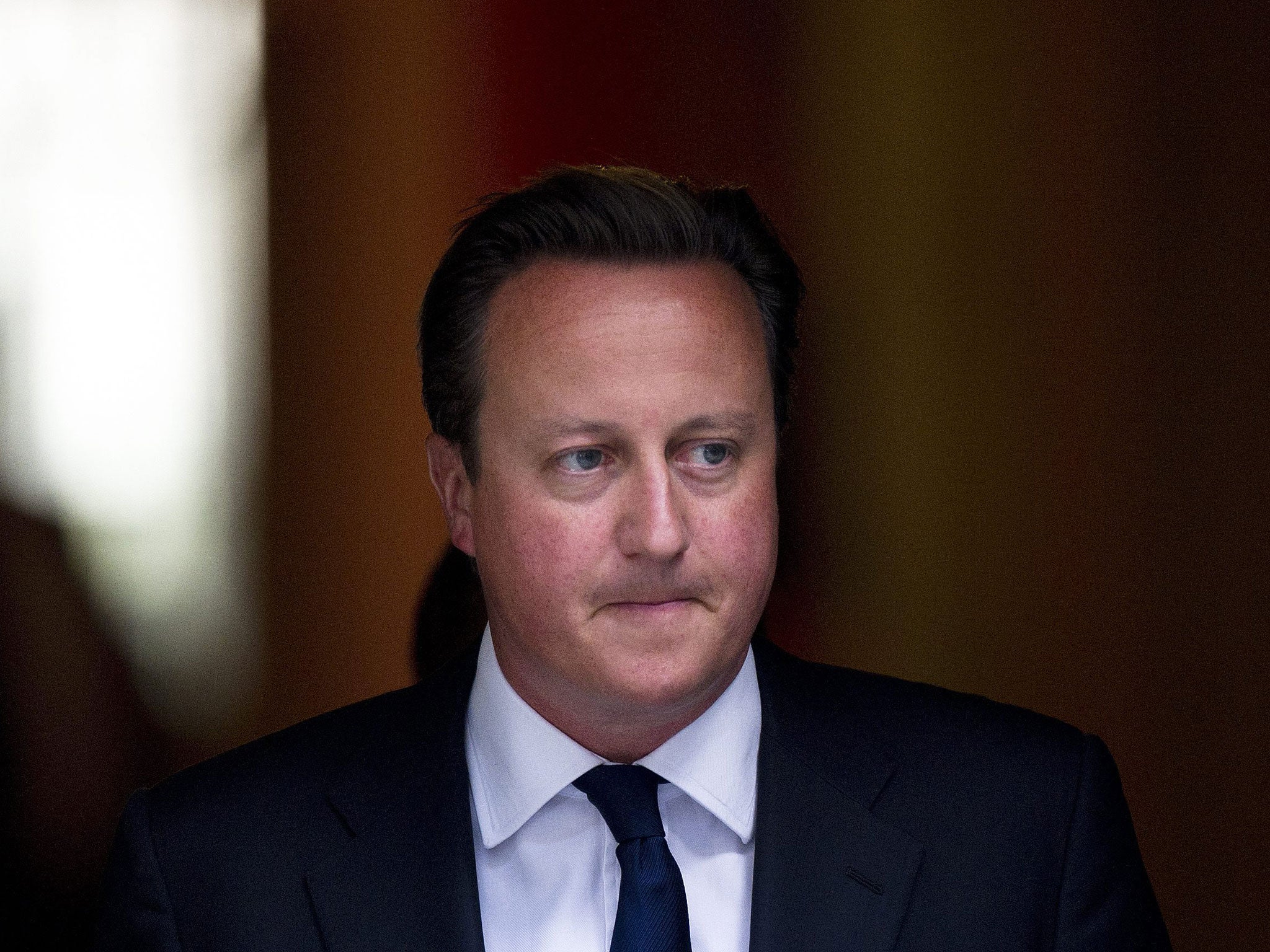David Cameron's unlikely victory from defeat
The Prime Minister may have lost the argument in Parliament for armed intervention in Syria, but he has gained public respect


The first question about Thursday's vote in the House of Commons ought to be about what it means for the Syrian people. To which the answer is that it makes no difference. Air strikes against Assad's regime to try to deter him from using chemical weapons again could happen anyway. It is just that British forces will not take part in them.
Whether those US-French missiles would succeed in their aim is a question with which we British need not struggle any more. The deterrence argument was a powerful one. It was most powerful when expressed in the negative. As David Cameron said in the debate, if the world "stands back and does nothing, I think Assad will draw very clear conclusions from that". The counter-argument was almost as powerful: that limited strikes, even if they did make Assad more cautious about using chemical weapons, would add to the casualties and do nothing to stop the Syrian regime's conventional-weapons killing machine.
The Commons preferred the second argument, and so Britain will be a spectator for the next act of the Syrian tragedy. Thus it should not be tasteless or parochial to consider what effect last week's vote will have on British politics.
Surprisingly, considering that the Prime Minister misjudged the Commons and suffered a defeat that had the historians scurrying to the 18th century for a precedent, he may emerge from last week unscathed. Ed Miliband, on the other hand, who was cheered by Labour whips on Thursday night and credited with having stopped our participation in an unpopular war, may have been weakened.
To see why, we need to separate procedure from fundamentals. Cameron's decision to recall Parliament, then to retreat from a vote to authorise military action, and then to lose the vote even on a watered-down motion, are questions of procedure. The fundamental point is that the Commons would not have voted and will not vote for intervention in Syria. I don't know how obvious that was on Tuesday, when Cameron announced that the House would sit on Thursday. It certainly didn't occur to me. But someone in No 10 should have asked: how sure are we that Labour will support us? And how many Conservative MPs will vote against the Government?
Actually, I understand those questions were asked, but the answers were complacent. Cameron thought Miliband would back him, but didn't consult him before deciding to recall Parliament. After the recall was announced, Miliband said that the use of chemical weapons was "abhorrent and cannot be ignored", and that Labour would "consider" supporting action. But Cameron assumed that, even if Miliband switched sides, no more than 20 MPs of the coalition parties would rebel. He and his inner circle believed so strongly in their case that they thought his conviction would carry the day. As it was, even on the diluted motion that postponed the decision, 30 Tories and nine Liberal Democrats voted against the Government.
Cameron's procedural miscalculation was surprising, but at some point he would have had to face the fact that the Commons would not vote for the use of force.
This weekend, Barack Obama is close to ordering his "shot across the bows", and so the UK Government would have had to decide whether to be part of it. There might have been a neater and less embarrassing way of standing aside, but Cameron would have had to say a form of what he said on Thursday night: "I strongly believe in the need for a tough response to the use of chemical weapons, but I also believe in respecting the will of this House of Commons."
This is an awkward position for a prime minister, although it is one wearily familiar to Cameron: of wanting to do something but not being able to get the votes for it in Parliament. Usually, it is because he is in coalition with the Liberal Democrats. On this occasion, Nick Clegg was as strongly supportive of military action as he was. So much so that the Lib Dem leader had to stand on its head his definition of Iraq as an "illegal war": that at least had some basis in UN resolutions, but the Government's position then and now rested on the Attorney General's advice.
The result is that the voters know where Cameron stands, but they get what they want, which is no more military adventures, especially one where we are the ally of the US in a Muslim country. The Prime Minister's position, of clarity and humility, accepting the will of Parliament, "reflecting the views of the British people", seems popular.
Paradoxically, Miliband finds himself in the even more awkward position of being aligned with public opinion. Most voters probably share his deep emotional aversion to Britain's being seen as an "aircraft carrier for the US". But that leaves him with the feeble argument in public that perhaps if we speak nicely to Vladimir Putin he'll have a quiet word with his client Assad. And in private, further damage has been done to his standing in his own Shadow Cabinet.
They saw at close quarters how he vacillated last week, first appearing to support air strikes and then inventing spurious grounds for delay. They saw how he played politics with a question of national security, refusing to support the Government when it conceded all his points, proving himself, as Sir Malcolm Rifkind said, "incapable of taking yes for an answer".
Last week's defeat for Cameron, and the way he responded to it, may have been a victory in disguise.
Join our commenting forum
Join thought-provoking conversations, follow other Independent readers and see their replies
Comments
Bookmark popover
Removed from bookmarks